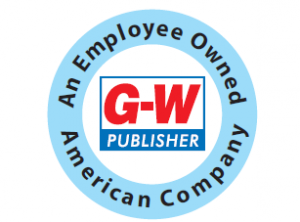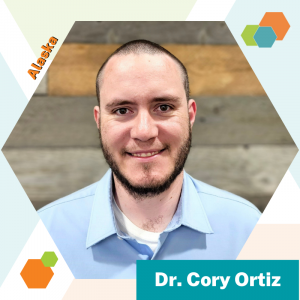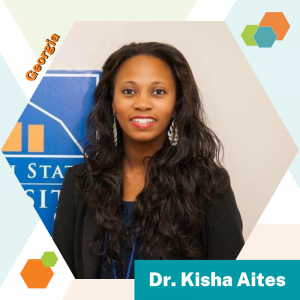 Career Technical Education (CTE) systems are filled with proud moments of learner achievement, from graduation ceremonies to competitions and certifications. Research consistently shows that these recognition opportunities have positive impacts, increasing knowledge and engagement in learning. At NOCTI/Nocti Business Solutions (NBS), we believe in recognizing talent across all CTE stakeholder groups, including education professionals. These professionals include teachers, administrators, work-based learning coordinators, and data professionals—roles that are important to the success of CTE systems. Let’s explore the unique certification opportunities designed specifically for CTE professionals and why they are essential for navigating the seas of career success
Career Technical Education (CTE) systems are filled with proud moments of learner achievement, from graduation ceremonies to competitions and certifications. Research consistently shows that these recognition opportunities have positive impacts, increasing knowledge and engagement in learning. At NOCTI/Nocti Business Solutions (NBS), we believe in recognizing talent across all CTE stakeholder groups, including education professionals. These professionals include teachers, administrators, work-based learning coordinators, and data professionals—roles that are important to the success of CTE systems. Let’s explore the unique certification opportunities designed specifically for CTE professionals and why they are essential for navigating the seas of career success
Charting a Course for CTE Excellence
For over 56 years, NOCTI has been the trusted compass for measuring what matters in CTE. We are excited to offer a suite of national certifications developed in partnership with subject matter experts:
- Principles of CTE Teaching
- Principles of CTE Administration
- Principles of Work-Based Learning
- Principles of Working with CTE Data
Each certification is available at two levels, reflecting the pivotal roles these professionals play in a thriving CTE system.
Pedagogy and Polish. The Principles of CTE Teaching certification provides a roadmap of fundamental knowledge and skills needed to facilitate technical learning. It covers classic teaching pedagogy and addresses unique aspects of CTE environments, such as safety protocols and integrating Career Technical Student Organizations (CTSOs), and is designed for those interested in teaching in career and technical education fields as a profession.
Leading with Perspective. School administrators play multifaceted roles in shaping the culture and identity of CTE programs. The Principles of CTE Administration certification is designed with an understanding of leading career technical teaching and learning while promoting CTE in the broader workforce development community.
Planning, Designing, Coordinating. The Principles of Work-Based Learning certification offers educators an opportunity to highlight their knowledge of coordinating school, program, and community systems. This certification, aimed to support educators interested in a work-based learning coordinator role, can support career advancement and introduce educators to various stakeholders.
Noticing the Numbers. NOCTI’s Principles of Working with CTE Data certification recognizes the unique role of data professionals in schools, districts, and state systems. It highlights the depth of knowledge required in data utilization, protection protocols, governance, and management frameworks and can provide these professionals with an opportunity to showcase their unique data-related expertise.
Benefits of Professional Certifications
Pursuing professional certifications offers numerous advantages:
- Career advancement
- Competitive edge
- Potential for enhanced compensation
- Deeper engagement with specialized knowledge
- Connection with professional communities
- Intrapersonal growth
- Increased credibility
- Boosted professional confidence
- Demonstration of commitment to the profession
Last spring, I had an opportunity to witness a group of data professionals preparing for Principles of Working with CTE Data credential. There was an air of nervousness and pride as they readied themselves for the process. Once finished, the buzz in the air was palpable. The typical talk among data talents about tools, the latest security issues, and systems challenges, was overrun with chatter about how much they learned from their testing experience, how good it felt to strive for the credential, and how excited they were to receive their results.
Navigating “C-worthy” Opportunities
Just as skilled navigators chart courses through vast oceans, CTE professionals can use certifications to plot their career trajectories. NOCTI’s Education Professional certifications provide an opportunity for CTE educators to demonstrate expertise and build credibility. These certifications support learners in moving into new areas of work or acquiring new skills. By validating their abilities against industry-based standards, these certifications boost professional confidence. Moreover, pursuing certifications demonstrates a commitment to self-improvement and industry standards.
In addition to individual benefits, NOCTI’s Education Professional certifications can support state-level professional preparation systems. As a national benchmark tool, the certifications can support accreditation programs, provide direction for mentoring programs via a pre- and post-test approach, and be a source of data to inform professional development efforts, both at the institutional and state levels. Data from implementation over multiple cohorts can also inform professional program effectiveness and improvements.
Sailing Towards Excellence
For the NOCTI/NBS team, developing and offering Education Professional certifications is a mission-driven effort. We recognize the uniqueness of CTE and the dedicated professionals who serve in these systems. By creating avenues to support the growth, advancement, and recognition of CTE professionals, we help elevate the quality of CTE for more learners. Each of our four certifications is designed to reflect professional knowledge through a CTE lens. The benefits and positive opportunities that come from pursuing these professional certifications are grounded in the experiences of the outstanding educators we have had the privilege to support on their “C-worthy” journeys. Embark on your certification journey today and set sail toward new horizons of professional excellence in CTE!
We are proud to be a long-standing sponsor of Advance CTE. Be sure to visit our table at 2024 Fall Meeting–we would love to connect with you and explore the certification opportunities NOCTI/NBS has to offer!
Kathleen McNally, CEO, NOCTI/NBS
The views, opinions, services, and products shared in this post are solely for educational purposes and do not imply agreement or endorsement by Advance CTE, nor discrimination against similar brands, products, or services not mentioned.


 From the first Career Technical Education (CTE) course in middle or high school to the final class in a pathway, course content should encourage learners to envision a future in high-pay, high-growth careers. As a State CTE Director, you may be leading your state CTE adoption, interested in increasing the number of learners in your state who take CTE courses, or working in a state that needs to boost its economic development through CTE. Whatever your initiative is, build CTE momentum in your state by encouraging your state’s CTE department leads, administrators, and teachers to try these three ways to encourage career exploration, provide up-to-date career information, and help learners prepare for a job search.
From the first Career Technical Education (CTE) course in middle or high school to the final class in a pathway, course content should encourage learners to envision a future in high-pay, high-growth careers. As a State CTE Director, you may be leading your state CTE adoption, interested in increasing the number of learners in your state who take CTE courses, or working in a state that needs to boost its economic development through CTE. Whatever your initiative is, build CTE momentum in your state by encouraging your state’s CTE department leads, administrators, and teachers to try these three ways to encourage career exploration, provide up-to-date career information, and help learners prepare for a job search. The key to CTE is practicing and building industry-specific skills.
The key to CTE is practicing and building industry-specific skills. 
 Rouxbe’s training supports CTE programs in unlocking career success, aligning with the four evidence-based strategies, or “keys”: postsecondary education and career guidance, dual enrollment opportunities, work-based learning, and industry-recognized credentials. By integrating Rouxbe into their curriculum, CTE educators can provide learners with access to high-quality education and career-connected experiences that set them up for success in the culinary field.
Rouxbe’s training supports CTE programs in unlocking career success, aligning with the four evidence-based strategies, or “keys”: postsecondary education and career guidance, dual enrollment opportunities, work-based learning, and industry-recognized credentials. By integrating Rouxbe into their curriculum, CTE educators can provide learners with access to high-quality education and career-connected experiences that set them up for success in the culinary field. 

 Willie Thompson
Willie Thompson Dr. Brittani Williams
Dr. Brittani Williams  Kellise Williamson
Kellise Williamson  Mike Woods
Mike Woods Kelly Zinck
Kelly Zinck Dr. Cory Ortiz
Dr. Cory Ortiz  Brian Rick
Brian Rick  Dr. Sara Shaw
Dr. Sara Shaw  Dr. Shelanda Simmons
Dr. Shelanda Simmons Yingfah Thao
Yingfah Thao Dr. Kisha Aites
Dr. Kisha Aites NiñaFe Awong
NiñaFe Awong Terryn Batiste
Terryn Batiste Renee Blackshear
Renee Blackshear Ignacio Chaparro
Ignacio Chaparro